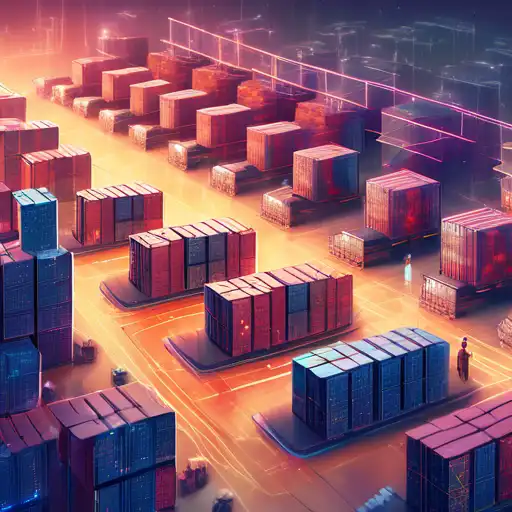Introduction to Blockchain in Supply Chains
Blockchain technology is setting a new standard for transparency, efficiency, and security in supply chains across the globe. By enabling a decentralized and immutable ledger of transactions, blockchain is solving some of the most pressing challenges in supply chain management.
The Current Challenges in Supply Chain Management
Traditional supply chains are plagued by issues such as lack of transparency, inefficiency, and vulnerability to fraud. These challenges not only increase costs but also delay the delivery of goods and services to the end consumer.
How Blockchain is Making a Difference
Blockchain technology introduces a level of transparency and security previously unattainable. Every transaction or movement of goods can be recorded on a blockchain, creating an unalterable history of the product from manufacture to delivery.
- Enhanced Transparency: All parties in the supply chain can view the same information, reducing disputes and errors.
- Improved Efficiency: Smart contracts automate processes, reducing the need for manual intervention and speeding up transactions.
- Increased Security: The decentralized nature of blockchain makes it nearly impossible to hack or alter data fraudulently.
Real-World Applications of Blockchain in Supply Chains
Several industries are already leveraging blockchain to revolutionize their supply chains. For example, the food industry uses blockchain to track the origin and journey of products, ensuring safety and quality. Similarly, the pharmaceutical industry employs blockchain to combat counterfeit drugs by verifying the authenticity of medications.
The Future of Supply Chains with Blockchain
As blockchain technology continues to evolve, its potential to transform supply chains is limitless. Future advancements could include more widespread adoption of smart contracts, integration with IoT devices for real-time tracking, and even greater transparency and efficiency across all sectors.
For more insights into how technology is shaping industries, explore our technology trends section.
Conclusion
Blockchain is not just a technological innovation; it's a paradigm shift in how supply chains operate. By addressing the core challenges of transparency, efficiency, and security, blockchain is paving the way for a more reliable and sustainable future in supply chain management.
